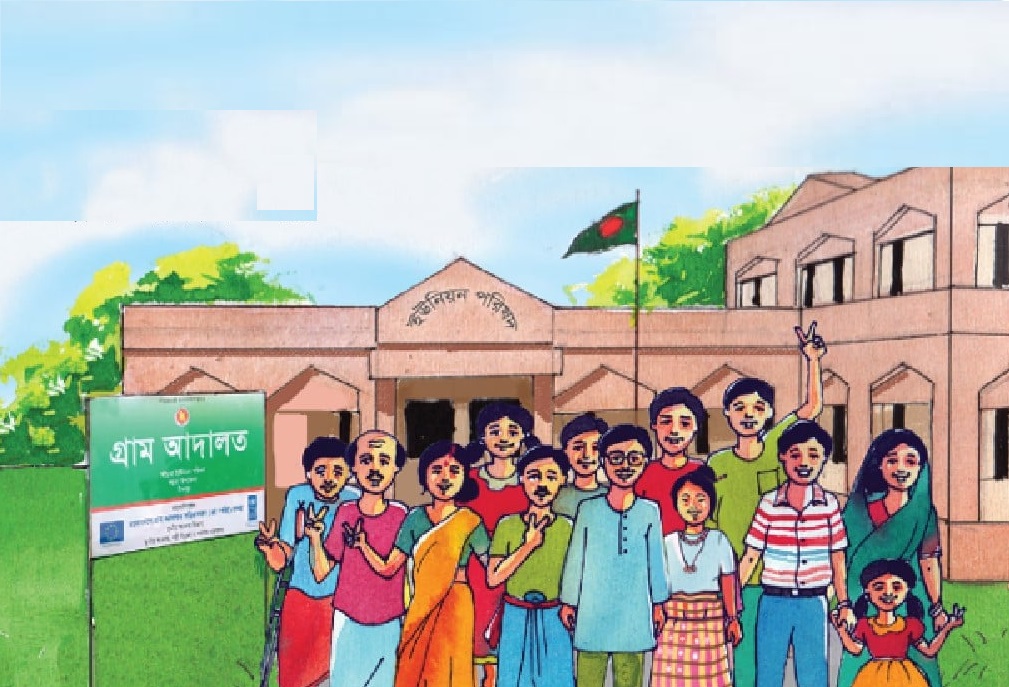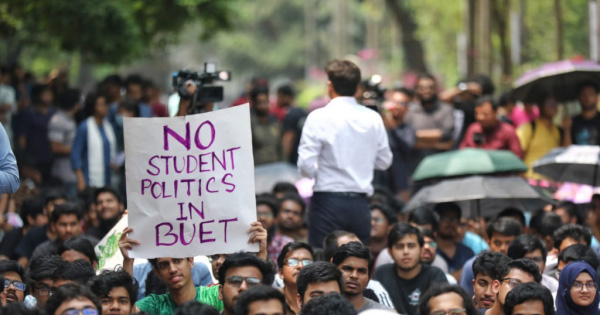In the intricate web of Bangladesh’s political landscape, where power dynamics often overshadow democratic principles, the recent meeting between the European Union (EU) delegation and the Bangladesh Nationalist Party (BNP) has illuminated the persistent injustices faced by the opposition party. As the EU Election Exploratory Mission delves into the feasibility of sending observers for the upcoming national election, it has inadvertently exposed the deep-seated issues plaguing Bangladesh’s democratic processes, particularly concerning the treatment of the BNP.
The meeting, held at the BNP Chairperson’s Gulshan office, served as a platform for dialogue between the EU delegation and BNP leadership, including Secretary General Mirza Fakhrul Islam Alamgir and other prominent members. However, beyond the diplomatic niceties, the discussions unveiled a stark reality of political persecution, arbitrary arrests, and systematic repression faced by the BNP and its supporters. One of the central grievances articulated by the BNP delegation pertains to the demand for a non-party interim government before the next national election. This call, rooted in the party’s commitment to ensuring a fair and transparent electoral process, has been met with resistance and hostility from the ruling Awami League government. Despite repeated appeals and efforts to engage in constructive dialogue, the BNP’s pleas for electoral reforms and the establishment of an impartial administration have fallen on deaf ears, further exacerbating the prevailing sense of injustice.
Moreover, the meeting provided a platform for the BNP to shed light on the egregious human rights violations and legal injustices perpetrated against its leaders and activists. The arbitrary arrests of senior BNP figures, including Mirza Fakhrul Islam Alamgir, under dubious charges highlight the government’s systematic campaign to stifle dissent and suppress political opposition. These so-called “ghost cases” are emblematic of a broader pattern of abuse of power and manipulation of the legal system to target individuals perceived as threats to the ruling regime. Furthermore, the plight of BNP leaders and activists languishing in jail, often without due process or fair trial, underscores the erosion of democratic norms and the rule of law in Bangladesh. The alleged repressive tactics employed by the government, including late-night court proceedings and harassment of families, paint a grim picture of the prevailing climate of fear and intimidation faced by the opposition.
In addition to highlighting the injustices perpetrated against the BNP, the meeting also served as a forum to discuss the broader political landscape in Bangladesh. The EU delegation’s engagement with various political parties, including the ruling Awami League and Jatiya Party, underscores the international community’s concern regarding the fairness and transparency of the electoral process. The EU’s scrutiny of the upcoming election reflects a growing awareness of the challenges facing Bangladesh’s democracy and the need for concerted efforts to address them. As the EU Election Exploratory Mission continues its assessment, it is imperative for the international community to closely monitor developments in Bangladesh and hold the government accountable for its actions. The EU’s potential deployment of election observers carries significant implications for the credibility of the upcoming election and the legitimacy of the government that emerges from it. By shining a spotlight on the injustices faced by the BNP and other opposition parties, the EU has reaffirmed its commitment to upholding democratic values and principles worldwide.
In conclusion, the EU delegation’s meeting with the BNP has provided a sobering reminder of the challenges confronting Bangladesh’s democracy. From the suppression of political dissent to the erosion of fundamental rights, the injustices faced by the BNP underscore the urgent need for reform and accountability. As Bangladesh prepares for the upcoming national election, it is incumbent upon the government to ensure a level playing field for all political parties and uphold the principles of democracy and rule of law. Anything short of this risks further undermining the integrity of Bangladesh’s democratic institutions and eroding public trust in the electoral process.







